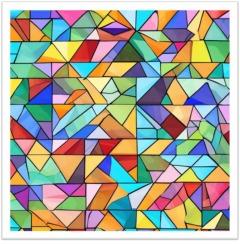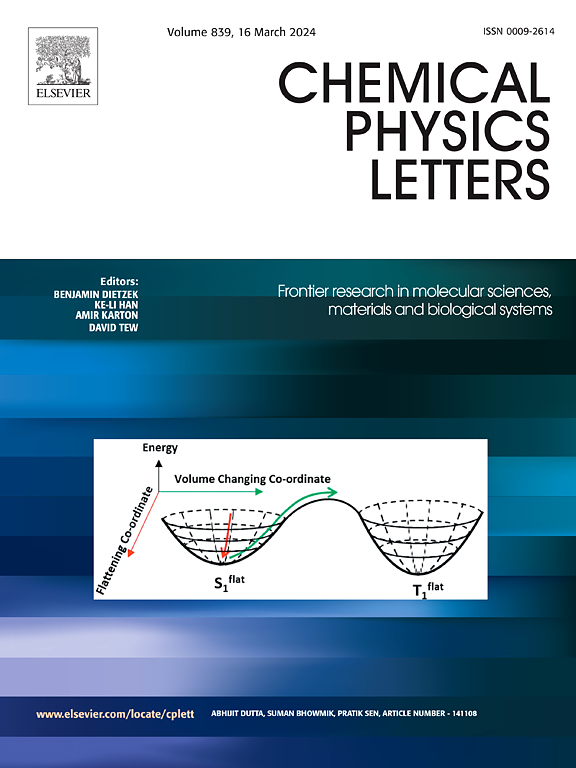玻璃态液体的结构熵
IF 2.8
3区 化学
Q3 CHEMISTRY, PHYSICAL
引用次数: 0
摘要
借鉴香农熵,我们开发了一个名为 "结构熵 "的参数,该参数由原子构型唯一推导得出,用于测量玻璃化转变过程中的无序演化。我们将这一参数应用于 CuZrAl 系统的玻璃化转变。与构型熵的比较表明,两者可能从根本上囊括了相同的物理概念:系统的无序程度。这一新的结构熵参数在玻璃的宏观特性和微观结构之间架起了一座桥梁,有助于深入了解玻璃转变的内在机制。本文章由计算机程序翻译,如有差异,请以英文原文为准。

Structural entropy of glass-forming liquid
Drawing on Shannon entropy, we developed a parameter called “structural entropy,” which is derived uniquely from atomic configurations and serves to measure the evolution of disorder during the glass transition. We applied this parameter to the glass transition in the CuZrAl system. A comparison with configurational entropy suggests that both may fundamentally encapsulate the same physical concept: the system’s level of disorder. This new structural entropy parameter bridges the gap between the macroscopic properties and the microscopic structure of glass, offering insights into the mechanisms underlying the glass transition.
求助全文
通过发布文献求助,成功后即可免费获取论文全文。
去求助
来源期刊

Chemical Physics Letters
化学-物理:原子、分子和化学物理
CiteScore
5.70
自引率
3.60%
发文量
798
审稿时长
33 days
期刊介绍:
Chemical Physics Letters has an open access mirror journal, Chemical Physics Letters: X, sharing the same aims and scope, editorial team, submission system and rigorous peer review.
Chemical Physics Letters publishes brief reports on molecules, interfaces, condensed phases, nanomaterials and nanostructures, polymers, biomolecular systems, and energy conversion and storage.
Criteria for publication are quality, urgency and impact. Further, experimental results reported in the journal have direct relevance for theory, and theoretical developments or non-routine computations relate directly to experiment. Manuscripts must satisfy these criteria and should not be minor extensions of previous work.
 求助内容:
求助内容: 应助结果提醒方式:
应助结果提醒方式:


